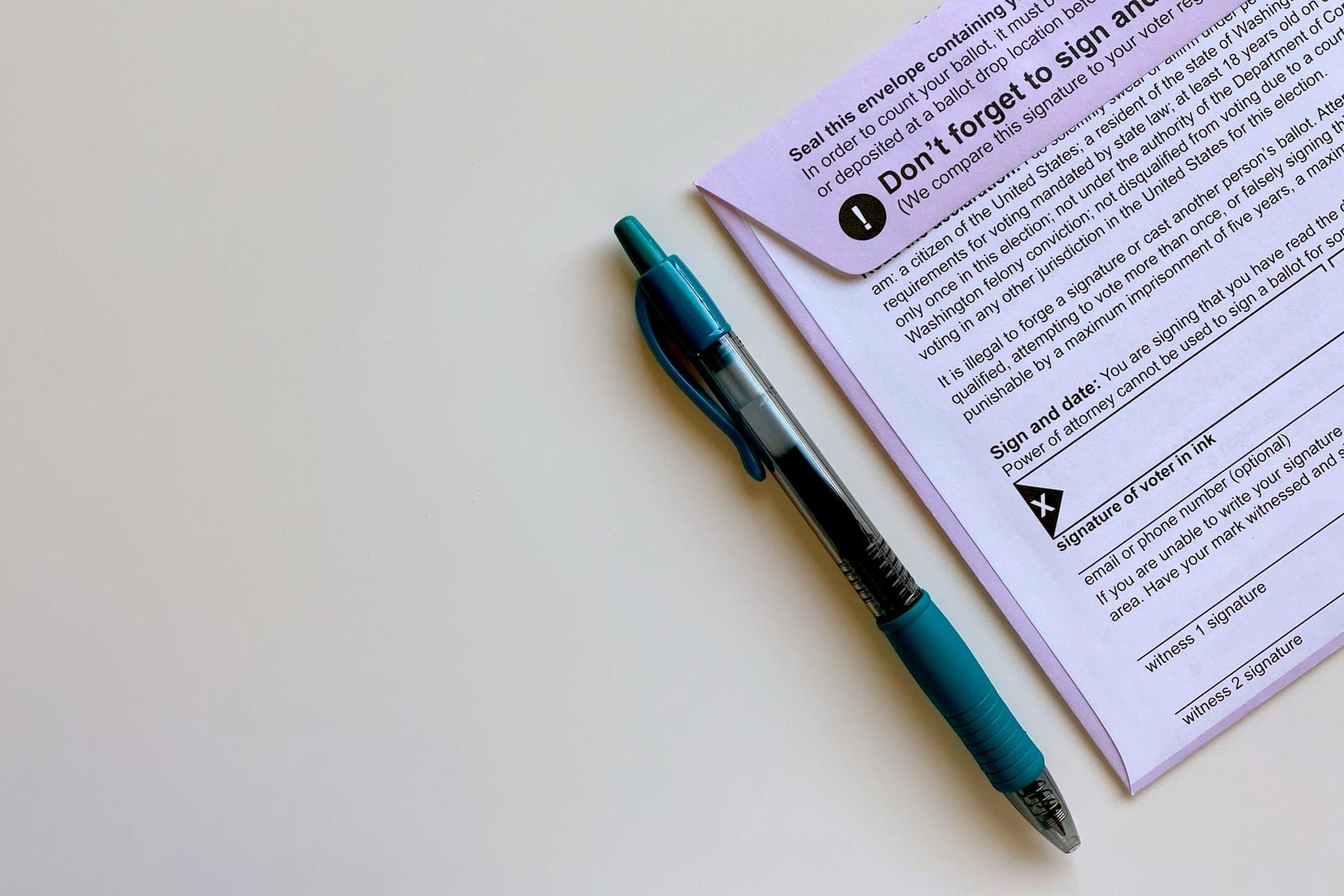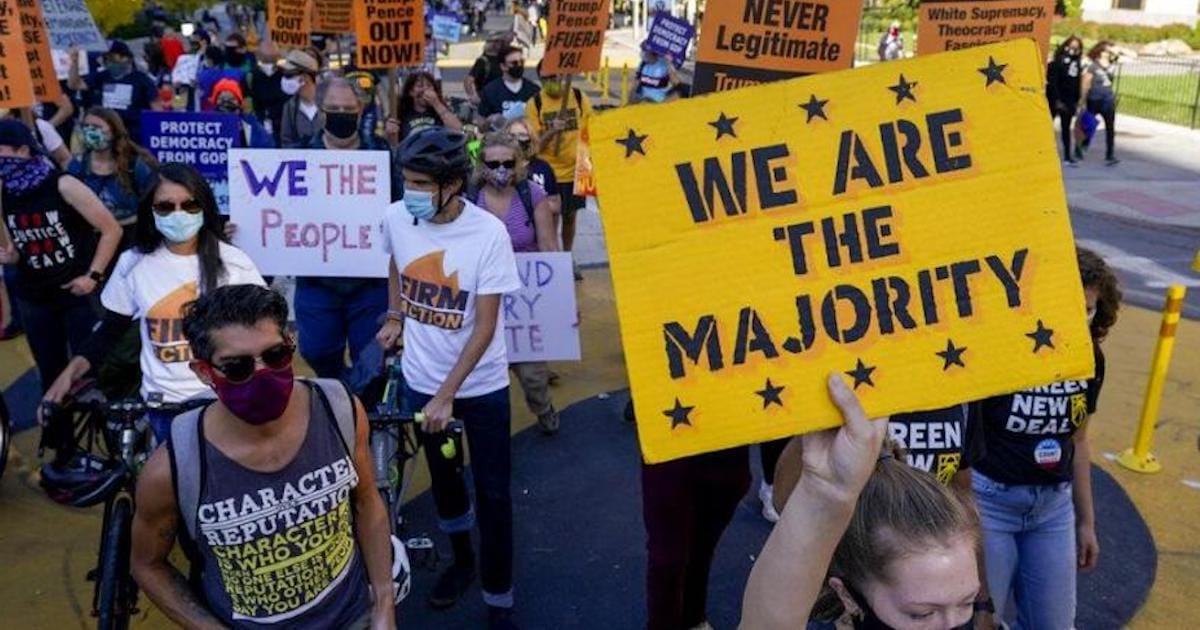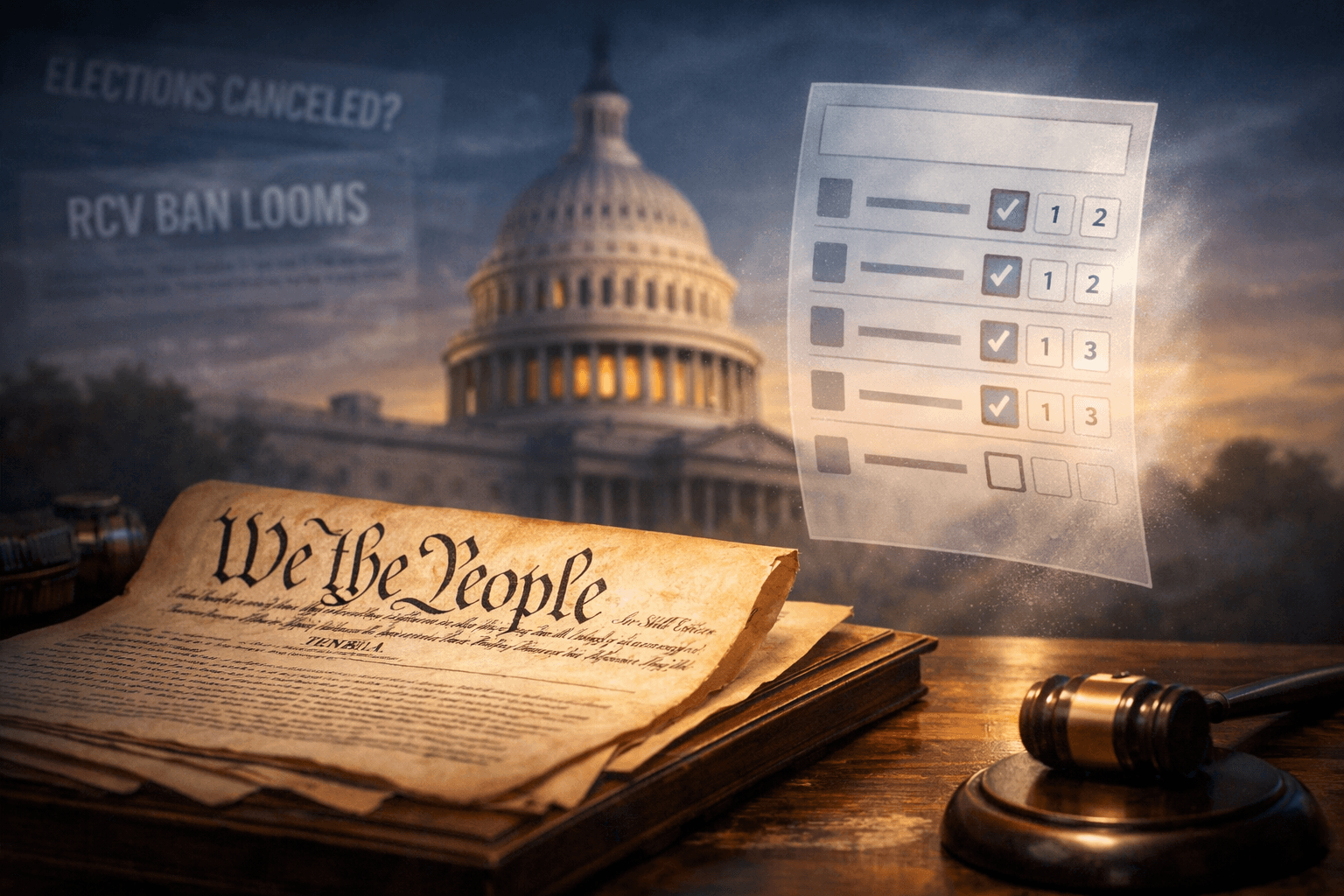Is Trump Serious About Banning Mail-In Ballots… or Is It Rage-Bait?

Earlier this month, President Donald Trump took to Truth Social, claiming he was going to “lead a movement to get rid of mail-in ballots,” adding that he would sign an executive order ahead of the 2026 midterms. However, Trump has yet to sign such an order.
This raises the question if Trump’s threat is serious or if he is merely baiting political opponents – especially when a quick Google search will tell anyone that the president doesn’t have the authority to implement such a policy.
But critics have spoken out.
California Governor Gavin Newsom, who has recently adopted the strategy of mocking the president by copying his social media style, said Trump’s call to ban mail-in ballots “reeks of desperation,” and called it another way Trump wants “to cook the results.”
If a nationwide ban did happen, California would be one of the hardest hit states as it allows no-excuse absentee voting. This means all registered voters are eligible to vote by mail. In fact, most Californians do.
Of the more than 16 million ballots cast in California last year, a little over 13 million were sent by mail.
However, putting the political theater aside – a nationwide ban on mail-in ballots would be extremely difficult because each state makes its own rules and to change anything about congressional elections would take more than a presidential proclamation.
It would take an act of Congress.
Who Controls the Rules on Mail-In Ballots?
The Constitution does not give the president any authority to make or change election law. The role of the Executive Branch is to enforce existing laws passed by Congress, and the purpose of an executive order is to direct members of the branch on how to enforce current law.
Congress has the authority under the Constitution to adopt election rules that pertain to federal elections only, but while the U.S. House has advanced more demanding voter ID requirements at the federal level under the SAVE Act, it hasn’t touched mail-in voting.
At least, not yet.
By design, the U.S. has a highly decentralized election system: states control the rules for how elections are administered, from registration to ballot counting. This is why states can have different primary election systems, voter ID requirements, and windows for early voting.
Some states conduct most of their elections entirely by mail while some limit who is eligible to even request a mail-in or absentee ballot. Half of states have a citizen-initiative process, allowing for voters to engage in direct democracy, and half don’t.
The point is elections vary considerably depending on where someone lives in the U.S. So, when Trump says states are “merely an ‘agent’ for the Federal Government” and must do what the president tells them – this isn’t true (particularly in this case).
In the Federalist Papers, James Madison and Alexander Hamilton described the intent of the Framers of the Constitution to find a “happy combination” between a structured federal Republic with a purer form of democracy for every state. (See Federalist No. 10)
So as critics of the president raise alarm bells over what they call a threat to election integrity – there isn’t actually much Trump can do on his own and they know that even as they try to escalate the rhetoric by claiming the “end of democracy as we know it.”
The Landscape of Absentee and Mail-in Voting Across States
As mentioned, each state has its own rules about mail-in and absentee voting. Five states – Colorado, Hawaii, Oregon, Utah, Washington – hold elections almost entirely by mail, and these states tend to have the highest voter turnouts each election cycle.
Additionally, California, Nevada, and Vermont allow all elections to be conducted by mail, but don’t require it and make it easy for citizens to vote by mail. Right now, 36 states plus DC allow no-excuse absentee voting – meaning voters don’t have to provide justification to vote by mail.
This includes many Republican-controlled states like Arizona, Florida, Nebraska, Ohio, and states that get a lot of media attention each election like Georgia and North Carolina. In Ohio, for example, 1.1 million voters cast a ballot by mail in 2024.
According to the U.S. Election Assistance Commission, about 30% of all ballots in 2024 were cast by mail, and while there isn’t a complete party breakdown on how mail-in voters affiliated politically, Pew Research recently found 58% of voters support no-excuse mail-in voting.
The survey didn’t break it down further to see how support for mail-in ballots changed if states required citizens to justify a need for them, whether because of age, physical disability, or geographical barriers that make it hard to get to a polling location on time.
The issue presented by the president, his opposition, the press, and even the pollsters is "all or nothing," instead of a comprehensive examination of the issue.
The Stakes Are Not as High as Americans Are Expected to Believe
Trump claims mail-in ballots lead to massive voter fraud. His opponents claim an executive order to ban mail-in ballots will “cook the results.” What if both sides are wrong?
In a media and political environment that expects people to pick a side between Trump and his Democratic opposition, there is no room for nuance.
And if the individual picks the wrong side, they are braindead, evil, side with fascism, or want to cheat in elections. (The accusations fall from both sides.)
The reality is, there is an opportunity to have a comprehensive national conversation about the way we cast ballots in the U.S.
For example, when Trump says mail-in ballots lead to massive voter fraud there is no hard evidence to support the claim. IVN has featured analyses that dive into the mechanisms in place in states like Colorado to protect against voter fraud in mail-in elections.
But the absence of fraud does not mean there aren’t legitimate concerns that abuse can take place when it comes to things like ballot harvesting, which occurs when individuals or groups collect and turn in ballots on people’s behalf.

In 2022, 4 people pleaded guilty in North Carolina to misdemeanors for their roles in absentee ballot fraud in the 2016 and 2018 elections, which resulted in an investigation and a do-over election – fraud that stemmed from ballot harvesting, which is illegal in the state.
AP reports:
Some of the workers said they were directed to collect blank or incomplete ballots, forge signatures on them and even fill in votes for local candidates. It is generally against the law in North Carolina for anyone other than the voter or a family member to handle someone’s completed ballot.”
It is understandable why people would be concerned about political operatives intentionally mishandling or manipulating other people’s ballots for their own self-interests or gains. There are several states that restrict who is allowed to return a person’s ballot.
But in California – state law allows individuals and groups not related or even associated with a voter to collect their ballots. The use of ballot harvesting in the state has drawn national attention, and anyone can collect a voter’s ballot under the law as long as:
- They do not receive compensation for the amount of ballots collected;
- Sign the ballot envelope and state their relationship to the voter; and
- Return ballots collected in-person or put them in the mail no later than 3 days from the date the ballots were received.
Notably, a ballot won’t be disqualified if it is returned after the 3-day deadline or if the collector doesn’t sign it as long as it is returned by election day. So, these requirements are essentially pointless.
Ballot drop boxes were set up in 2020 by the California GOP, and despite stirring controversy – the state’s Democratic leaders said it was perfectly legal. In fact, legal analysts said under the law someone could stand on the street corner and collect ballots.
While the party eventually removed the drop boxes, President Trump encouraged their continued use.
There is no evidence of widespread abuse or fraud in California elections. However, the fraud committed in North Carolina, where ballot harvesting is illegal, is case-in-point that the potential for mischief and misconduct exists.
These deeper conversations fall by the wayside when voters are expected to look at the issue as “Trump is right about everything” or “Trump is a would-be fascist that is going to blow up democracy.”
Understanding how difficult it would be to implement a ban on mail-in voting across the U.S. and looking at how popular mail-in ballots are (even Trump has cast his ballots via mail), it’s quite possible the president simply wants to bait his political opponents.
And his opponents seem all too eager to take it – giving both sides an excuse to escalate the rhetoric to infinitely high stakes that don’t actually exist but deepen the partisan divide and keep people in a state of panic.
 Shawn Griffiths
Shawn Griffiths






